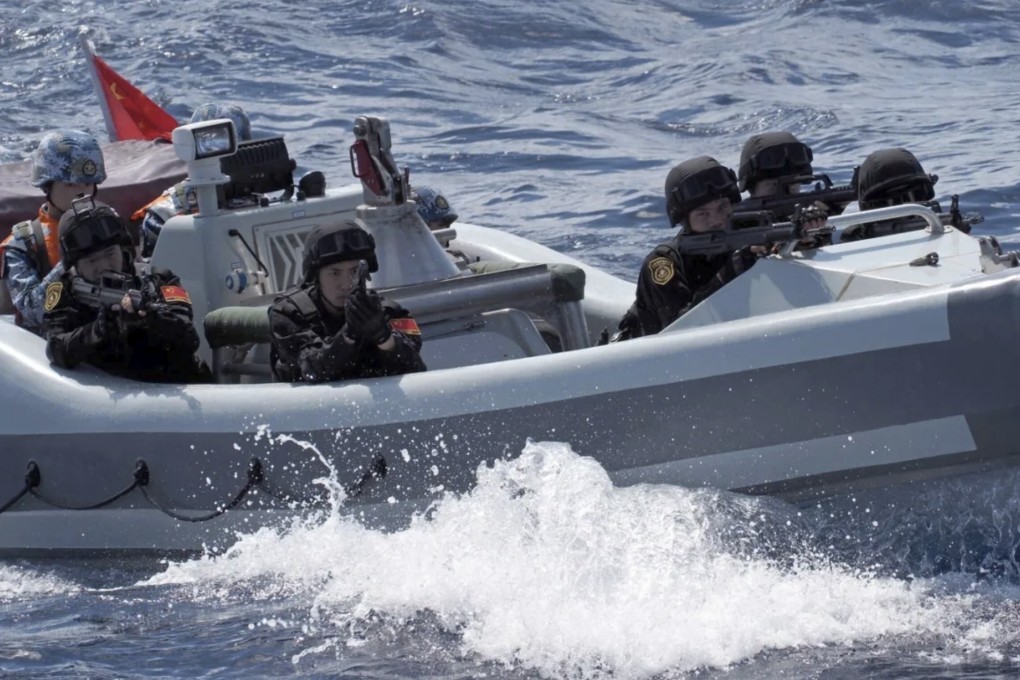Advertisement
China looks to military law to protect its overseas presence
- PLA delegates at the ‘two sessions’ meetings in Beijing discuss how legislation can better protect the national interest
- Experts say the country’s legal framework for its armed forces lags behind other major powers
3-MIN READ3-MIN
19

Stronger legal protections for China’s security and rights in its territorial waters and airspace – as well as in outer space – were the subject of a military discussion panel as part of the “two sessions” meetings in Beijing this week.
President Xi Jinping opened the discussion on Monday at a meeting of deputies from the People’s Liberation Army and the People’s Armed Police Force during the annual gathering of the National People’s Congress.
“China should make more comprehensive the body of military laws and regulations that involve foreign countries, so as to better protect national interests through the use of law,” Xi told a panel on the sidelines of the legislative session.
Advertisement
According to briefing notes released to the media, the military delegates discussed Xi’s remarks at a panel meeting the next day, including how to speed up the legislative process.
Former Southern Theatre Command chief Wang Jiaocheng, a member of the NPC Standing Committee, said areas covered should include foreign trade, protection of maritime rights and interests, and outer space security “to make good use of legal weapons to maintain national security”.
Advertisement
Former air force commander Ding Laihang told the panel legal protections could be strengthened for construction projects related to China’s global infrastructure programme, the Belt and Road Initiative.
Advertisement
Select Voice
Select Speed
1.00x